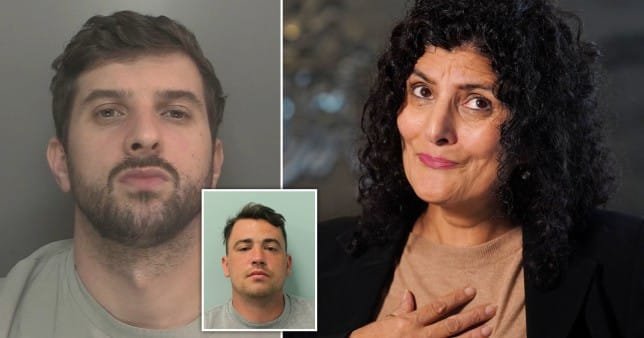The aunt of Zara Aleena is advocating for harsher punishments for criminals who avoid appearing in court with the families of their victims.
If murderers ignore victim impact statements, Farah Naz said on BBC Breakfast, their prison terms should be increased.
She remarked, “Surely the judgment is part of the punishment… we need to see that the process would deter further wrongdoing and how can the procedure feel like a punishment if the criminal exercises their piece of power?
It’s the final piece of authority that needs to be removed, at least in our opinion.
‘Otherwise we don’t have people deterred from committing crimes if they’re just moving from cell to cell there’s no sense of punishment.’
By law, defendants are allowed to choose not to attend their sentencing hearing, but it’s sparked outrage from campaigners, who say this denies families the chance to see justice being served.
Thomas Cashman, who shot and killed Olivia Pratt-Korbel in her own home, refused to come out of his cell yesterday to face the nine-year-old’s loved ones.
Latest London news
His defence barrister rattled out an excuse that he was upset over prosecutors singing ‘We Are the Champions’ after the jury found him guilty.
A judge slammed Cashman’s absence as ‘deeply disrespectful’ to both the court and Olivia’s grieving family as he was handed a life sentence.
It meant Cashman – unlike the vast majority of criminals in the UK – did not have to listen to the victim impact statements read out in court.
In December, Zara’s killer Jordan McSweeney was jailed for life after committing ‘almost unimaginable violence’ on the law graduate as she walked home in Ilford, east London.
But he refused to leave his cell for sentencing because he did not want to watch the CCTV of what he did.
Ms Naz said the family wanted her killer to hear how he had ‘completely destroyed’ them.
After meeting with her family, justice secretary Dominic Raab said he was looking into whether the law could be changed to compel offenders to attend their sentencing, and grant judges powers to impose longer prison sentences on those who opt to skip court.
She added: ‘I think there are other ways to make the convict come to face their judgement and that would be to add time to their sentencing or there can be other ways.’

